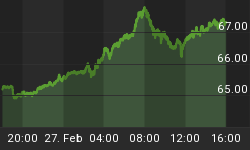Last week it was revealed that when Treasury Secretary Tim Geithner was Chairman of the New York Federal Reserve, he urged AIG officials not to disclose to the Securities Exchange Commission relevant details of agreements with banks to bail out Goldman Sachs. Apparently he felt at the time that regulators and the public would be angry that taxpayer money was used to fully compensate bankers who made some horrifically bad investment decisions. These banks should have suffered the consequences of the huge risks they were taking. After all, they kept plenty of rewards when times were good. Instead, the Fed found a way to socialize these major losses so these banks could survive and continue making more bad decisions, at the expense of the American people and the value of the dollar.
Geithner claims that they had to take politically unpopular actions to save the economy from collapse. Half of that is right - it was politically unpopular, but it is extremely premature at best, to claim the economy has been saved. It was just reported that 85,000 more jobs in December. Unemployment stands at 10 percent officially, and 22 percent according to more traditional calculations. It is hard to argue that this sort of government waste has done anything but harm to our economy. Raiding Main Street to bail out Wall Street is a foolish idea. Main Street productivity and the strength of the dollar is the bedrock of the economy. You cannot gut this foundation without eventually toppling everything else. This is what too many policy makers either don't understand or refuse to face. Or even worse, perhaps they do understand, but don't care!
In any case, this revelation makes precisely my point about the need for Fed transparency. This claim that the Fed should have "independence" is a canard. They very much enjoy their comfortable pattern of bailing out friends and devaluing the currency with no oversight and no accountability. Geithner specifically asked officials at AIG not to disclose to the SEC or to the public particulars about this special deal for his friends. We only know these details now because AIG was eventually forthcoming when Congress demanded some answers.
We should be getting this information, and information on all such dealings, straight from the Fed. The Fed should be accountable to Congress because it is a creature of Congress. The Constitution gives Congress the authority to oversee the integrity of the monetary unit. We have unwisely and unconstitutionally delegated this authority to the Federal Reserve, which has in turn devalued our dollar by 95 percent and counting. When the Federal Reserve engages in harmful policies, Congress is still ultimately responsible. If the Fed is not made accountable through a GAO audit at least, it will continue to be accountable to no one, and that is unacceptable.
Geithner expects to be praised and thanked for his actions instead of rebuked and fired. He expects to be given more power to engage in "experimental" monetary policy in the future. But he has just given us a very good idea of what the Fed and Treasury would do with more power, what they consider good monetary policy, and why they like their so-called independence.















